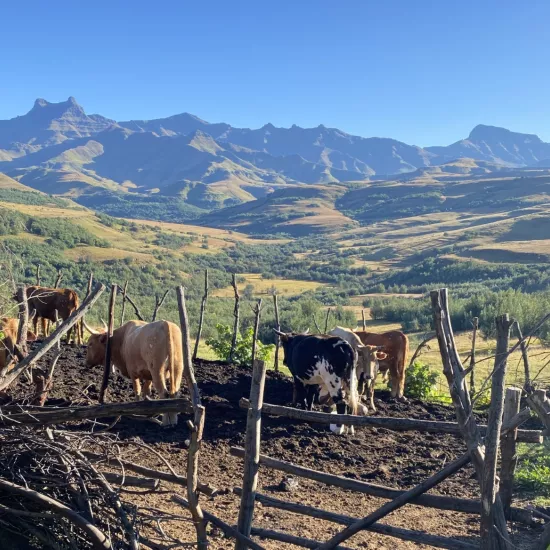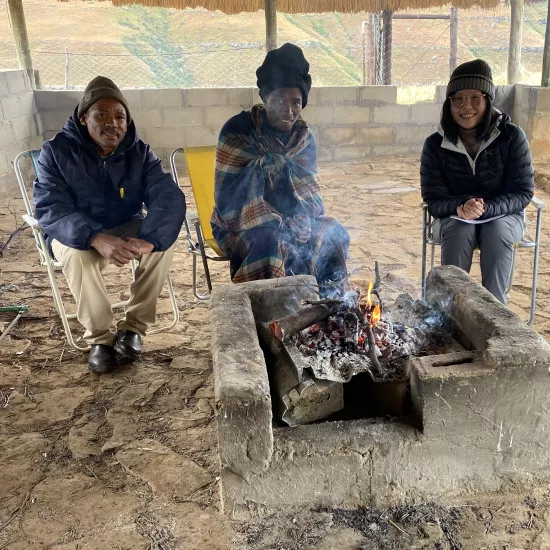

Effects of environmental and socioeconomic risks on sleep in an agropastoral community in the Eastern Cape
Study site: Eastern Cape, South Africa
Study population: Agropastoralists
At this site, agriculture (farming) is often coupled with pastoralism (herding) and residents in rural villages typically own or herd livestock as part of their daily routine. Due to the high-altitude location of the study site (1530m above sea level), there are extreme daily and seasonal weather fluctuations. Variations in temperature, rainfall, and wind speed, coupled with this community’s greater exposure to outside conditions, make for an excellent opportunity to investigate how strongly sleep measures are affected by environmental cues, which is a key advantage of studying sleep in field settings under natural conditions. Additionally, stock theft, also referred to as cattle raiding, is widespread and deeply entwined in the history, politics, and identity of this region straddling present-day South Africa and Lesotho. Extensive stock theft as well as extreme weather conditions, are salient sources of risk that are expected to affect sleep. This project aims to test the sleep flexibility hypothesis to explore how environmental, social, and livelihood risks mediate variations in sleep and activity patterns in this community.
SHEL Members: Ming Fei Li, David R. Samson
